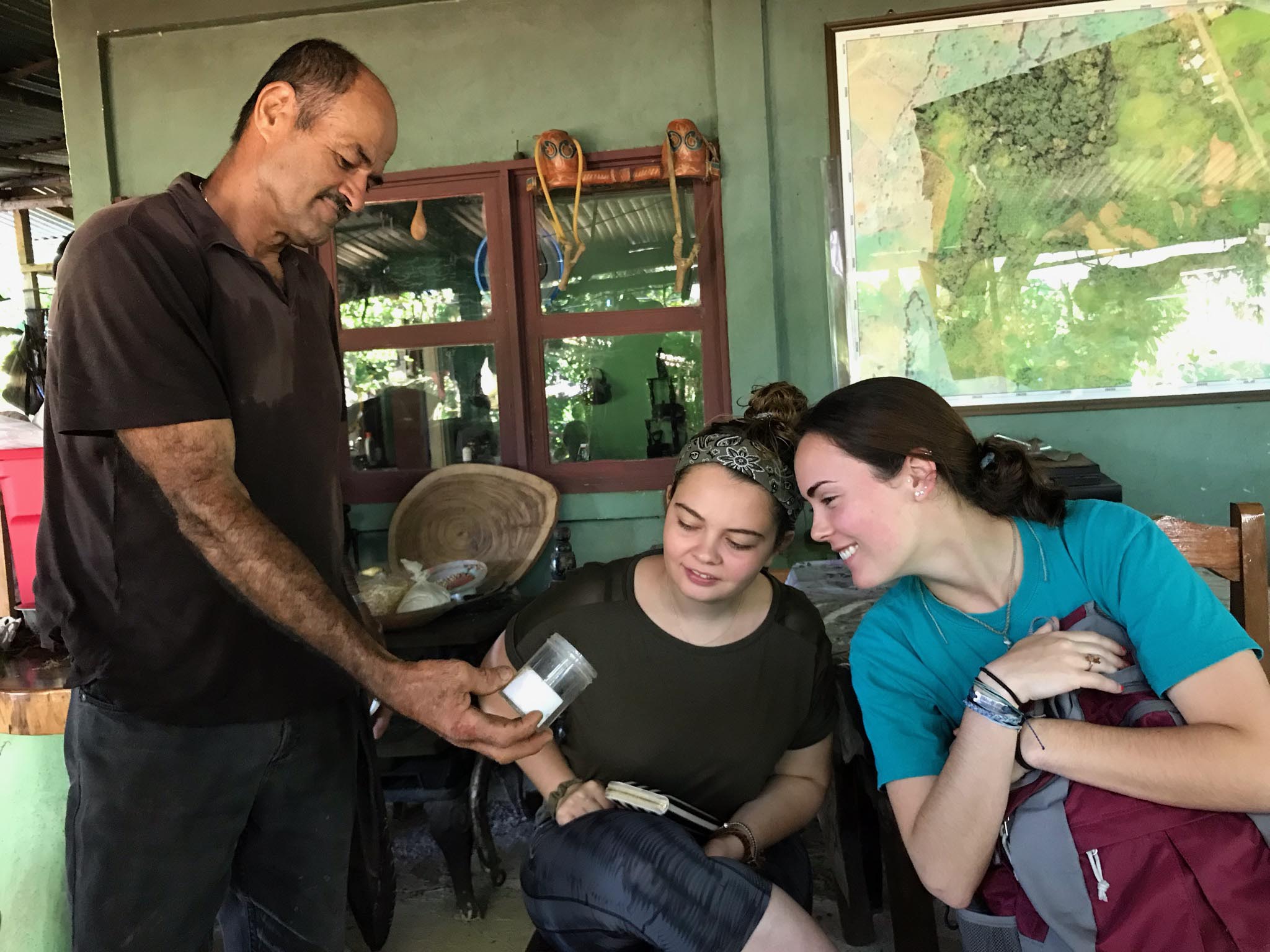Twelve students traveled to Costa Rica for two weeks to learn more about sustainability and conservation from a country considered to be a model for the practices.

Landowner and farmer Roberto Jiminez shows Cal U students Hannah Derry and Taylor Krucher the queen leaf cutter ant that he unearthed while working on his sustainable coffee farm (photo by Carol Bocetti).
The Topics in Field Biology: Sustainable Agriculture and Conservation course was taught by Drs. Carol Bocetti and Sarah Meiss, from the Department of Biological and Environmental Sciences.
Costa Rica is committed to sustainability — the practice of using resources today in a manner that ensures future generations will have access to those resources.
“We take students to that country because it provides a model for sustainable living,” Bocetti said of the trip, which is scheduled every other year.
“We chose agriculture and conservation, because that is one example of integrated sustainability. Costa Rica has decided that this intersection is their future. Ecotourism is a big deal to them, and if they would no longer have a rain forest to share with the world, that’s a problem.”
The class visited four different ecosystems — a dry forest, cloud forest and high and low rain forests. They also talked with those who are engaged in sustainable farming practices.
“I wanted to see what it was like in another country and how they were able to decrease their carbon footprint,” said Julianna Leiendecker, a fisheries and wildlife biology major.
“Some of the trip is about appreciating the incredible diversity,” Meiss said. “Students get a chance to see what we talk about in class, like sloths and red-eyed tree frogs. It’s an immersive experience. We are literally in the jungle; we wake up to howler monkeys.”
Students also get lessons in economics.
“You vote with every dollar you spend,” Meiss said. “You can be an informed consumer and ask questions about how items are produced. From the producer’s side, you have to be able to make a living to stay in business. It’s not a sustainable practice if it’s good for the environment but bad for business.”
“Our students also consider the realities and challenges of applying the Costa Rican model to the United States,” Bocetti said.
To complete the class, students must write a paper about a concept they found interesting or intriguing on the trip.
“One student did a paper on green composting, taking a look at whether we could do this on a bigger scale in the United States,” Bocetti said.
“It was rewarding for us to see our students so excited and engaged.”
